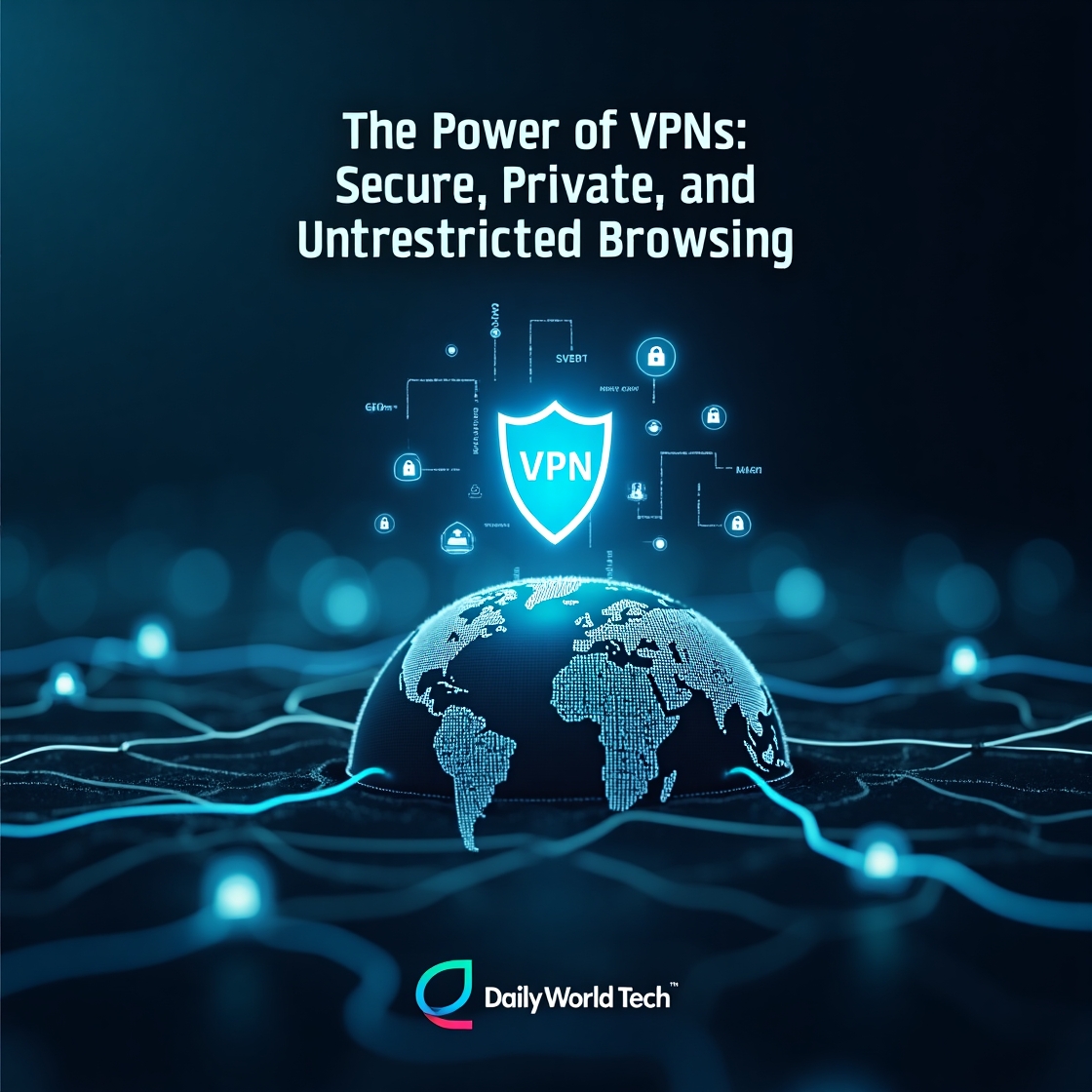These days, since almost everything we do is internet-connected, issues with privacy and security are rising. Any time you look at social media, log into your bank or watch your favourite TV episodes online, you keep sharing data. At this point, the need for a VPN or Virtual Private Network appears.
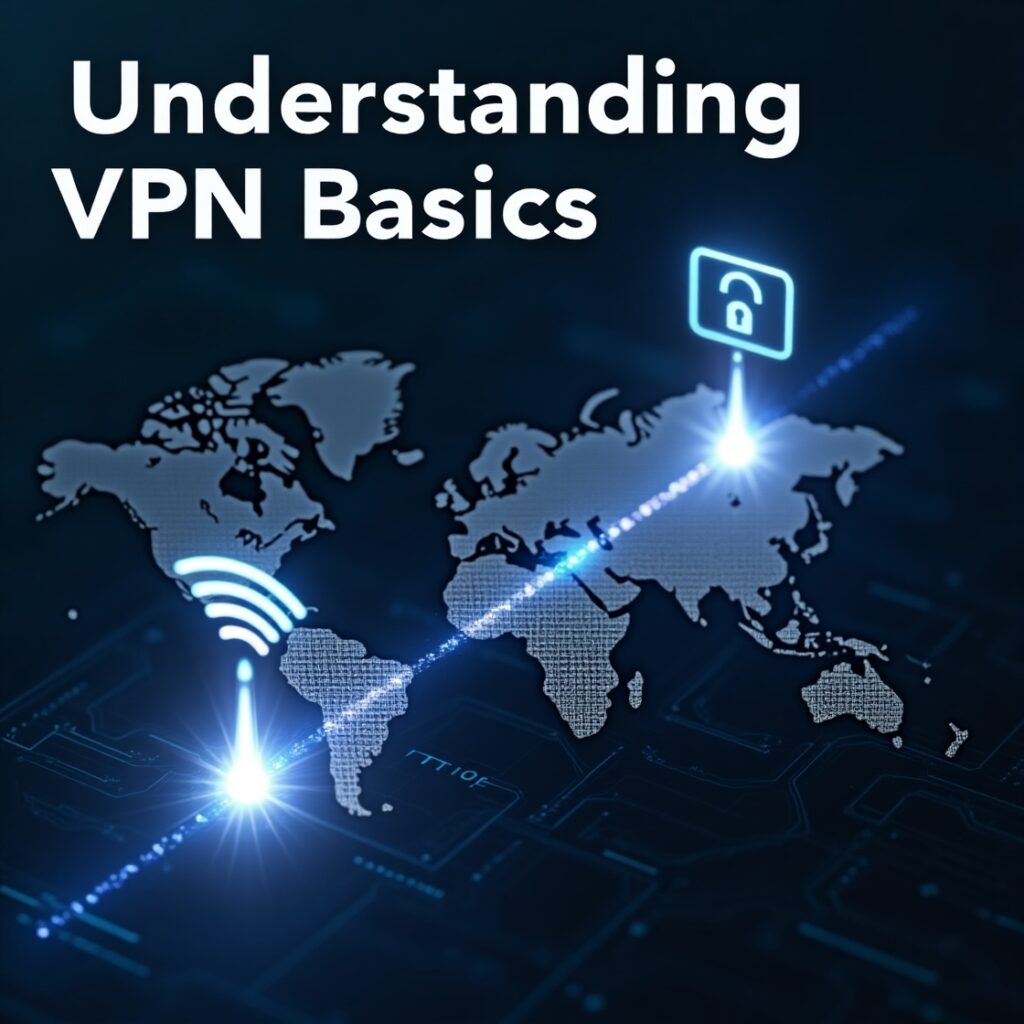
Understanding VPN Basics
A VPN provides a safe and secure connection over a network that is not fully secure, such as the Internet. Users can use the Internet like their devices are part of a private network. Fundamentally, it shields your actions and your IP address from hackers, governments, and even the ones who operate your Internet Service Provider (ISP).
What are the Mechanics Behind a VPN?
While connecting to the internet without a VPN, your information is carried openly on the servers and might be watched or even stolen by others. Still, through the use of a VPN:
- The device starts connecting to a VPN server.
- Every piece of information you send out is encrypted by the VPN server.
- Information is transmitted over a secure “route” to the correct location.
- Any responses that come back from the VPN go back to you via encryption and through the VPN server.
Because of this process, your IP address and location are hidden, so it appears you are browsing the internet from the VPN server’s area.
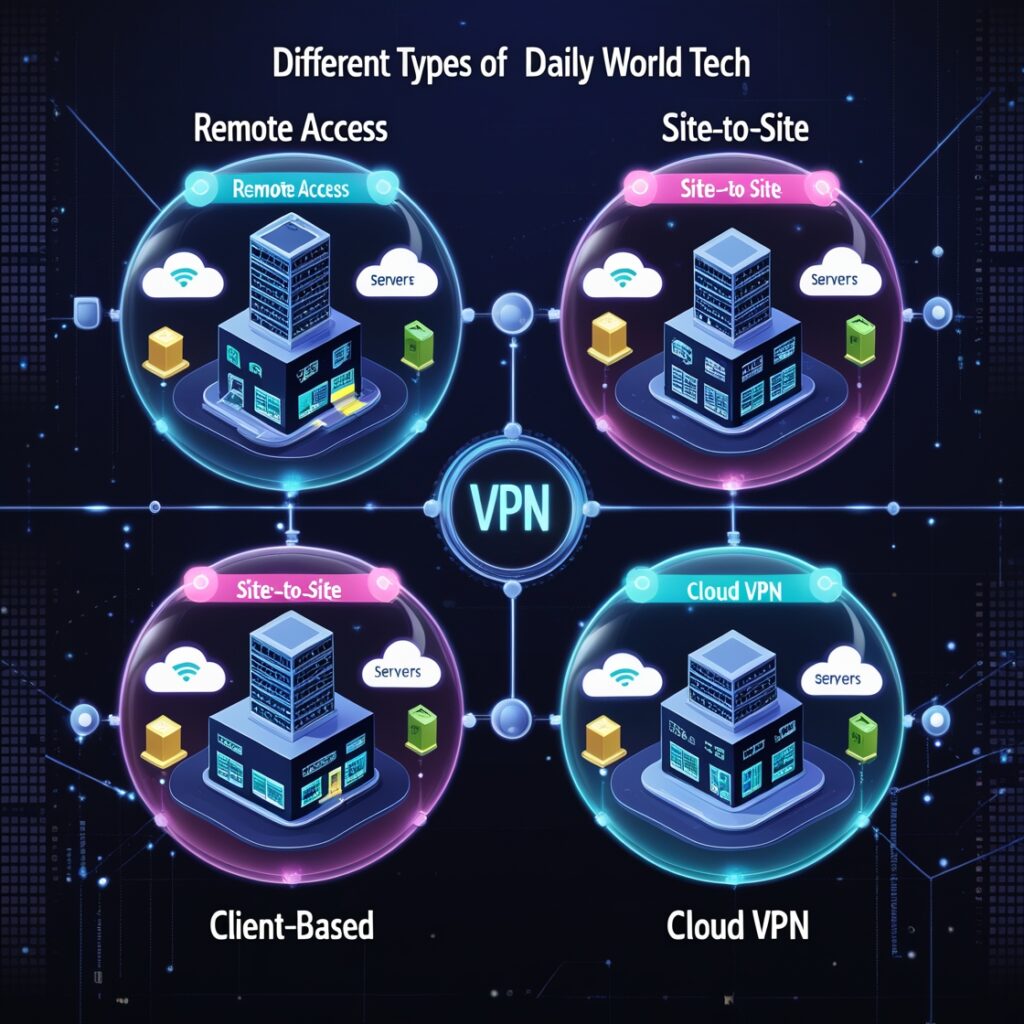
Different Kinds of VPNs
VPNs come in a variety of types and each one is best suited for a particular task.
Remote Access VPN
This kind of VPN helps users access a private network from anywhere outside their network. People working remotely usually use it to safely gain access to their company’s systems.
Site-to-Site VPN
A common use of this type of VPN is to link several large networks such as the branch offices to the main office. It ensures safe communication can happen between various locations online.
Client-Based VPN
A VPN software client must be installed on each user’s device. With the software, traffic is sent through a VPN server and kept safe by encryption.
Cloud VPN
Because it is cloud-based, many cloud-focused companies make use of this VPN. You can reach cloud resources securely from any spot you need them.
Explaining the Need for a VPN
1. Enhanced Privacy
Protecting privacy is the main reason people decide to use VPNs. With a VPN, your IP address is hidden which makes it harder for websites and others to monitor what you do online or where you are located.
2. Bypass Geo-Restrictions
Streaming services, websites, and applications have restrictions based on location. If you use a VPN, you can change your virtual country and open the media not on offer in your country.
3. Safely Use Public Wi-Fi
These networks can be very easy for hackers to access. Having a VPN active on your computer helps block anyone trying to spy on your connection on public Wi-Fi.
4. Stop Throttling the Bandwidth
Your internet connection may be slowed down by your ISP, mostly during times when lots of people are online. A VPN prevents your ISP from seeing your activities, so you may avoid throttling.
5. Defending from Cyber Threats
Many VPNs have security features included such as ones that block malware and ads, which can help protect you online.
VPN vs Proxy: What’s the Difference?
Though both VPNs and proxy servers can mask your IP address, there are key differences:
- Encryption: VPNs encrypt your data; proxies do not.
- Scope: VPNs protect all internet traffic from your device; proxies typically work only with specific applications or browsers.
- Security: VPNs offer much stronger security and privacy.
Potential Drawbacks of Using a VPN
While VPNs offer numerous benefits, they are not without drawbacks:
1. Reduced Speed
Due to encryption and rerouting through distant servers, your internet speed may decrease when using a VPN.
2. Cost
Many reliable VPN services require a monthly or yearly subscription fee. Free VPNs exist but often come with limitations or security risks.
3. Legal and Policy Issues
In some countries, the use of VPNs is restricted or even illegal. Always ensure you’re complying with local laws when using such services.
4. Compatibility Issues
Certain websites and services may block VPN traffic. You may find that some apps or platforms do not work properly when your VPN is active.
How to Choose the Right VPN
With numerous VPN providers on the market, choosing the right one can be challenging. Here are factors to consider:
- Security and Privacy Features – Look for strong encryption protocols (OpenVPN or WireGuard), a no-logs policy, and a kill switch.
- Server Locations – Wide server networks ensure global access and better speed.
- Speed and Performance – Check speed tests and reviews.
- Device Compatibility – Ensure it works on all your devices: Windows, macOS, Android, iOS, routers, etc.
- Customer Support – 24/7 support is a plus.
- Price and Plans – Avoid free VPNs. Choose affordable but reliable providers.
Popular VPN Providers
Some of the most reputable VPN services as of recent years include:
- ExpressVPN – Known for speed and reliability
- NordVPN – Strong security features and large server network
- Surfshark – Budget-friendly with unlimited device support
- CyberGhost – User-friendly with streaming-optimized servers
- ProtonVPN – Transparent and based in privacy-friendly Switzerland
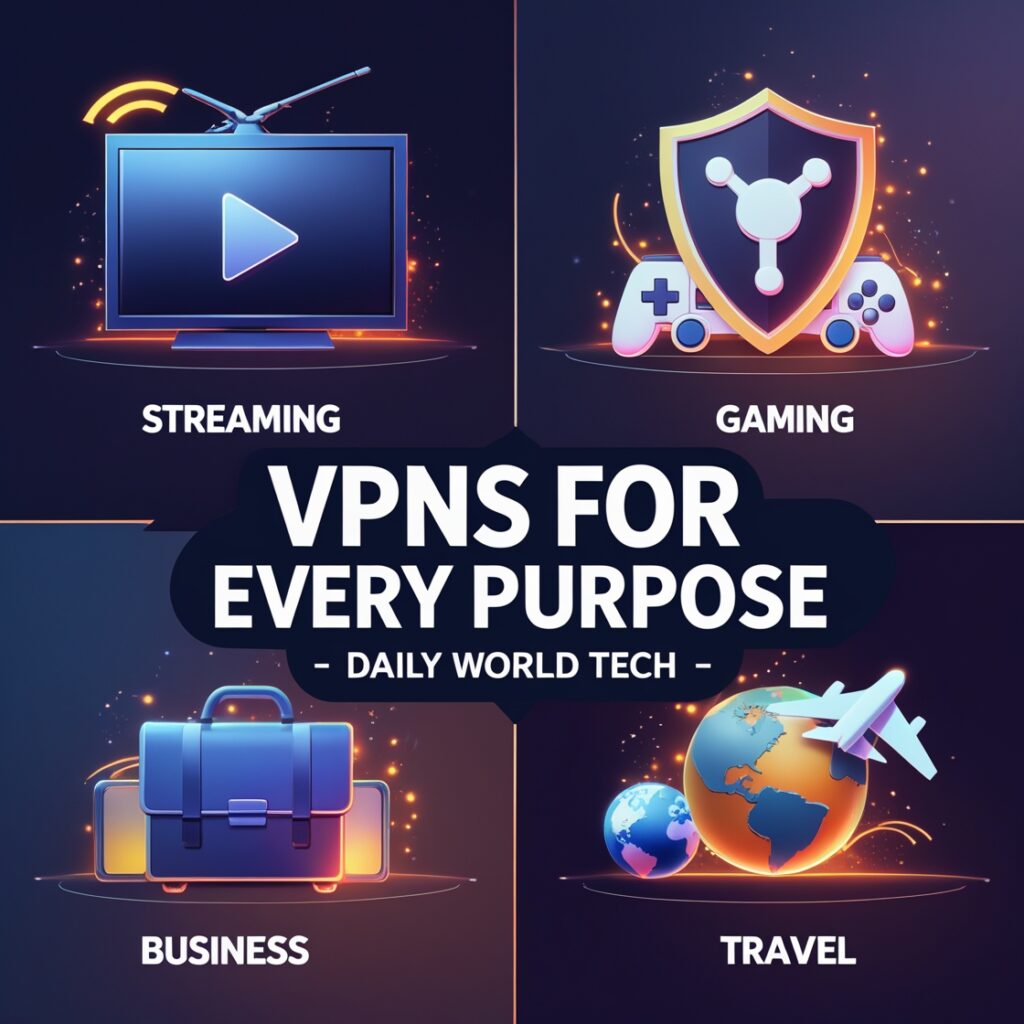
VPNs for Different Use Cases
For Streaming
Choose a VPN that can unblock Netflix, Hulu, BBC iPlayer, etc. Speed is also crucial for a buffer-free experience.
For Gaming
Look for low-latency connections and dedicated gaming servers. Some VPNs even help reduce ping.
For Business
Businesses need VPNs that support multiple users, offer centralized management, and provide high-level protection.
For Travelers
Frequent travelers can benefit from VPNs to access home content, bypass censorship, and secure public Wi-Fi abroad.
Are VPNs Legal?
In most countries, using a VPN is completely legal. However, there are exceptions:
- Banned or restricted: Countries like China, Iran, North Korea, and Russia either ban or heavily regulate VPN use.
- Permitted with caveats: In most regions, illegal activities through a VPN (like piracy or hacking) are still criminal offenses.
Always research the laws in your jurisdiction before using a VPN.
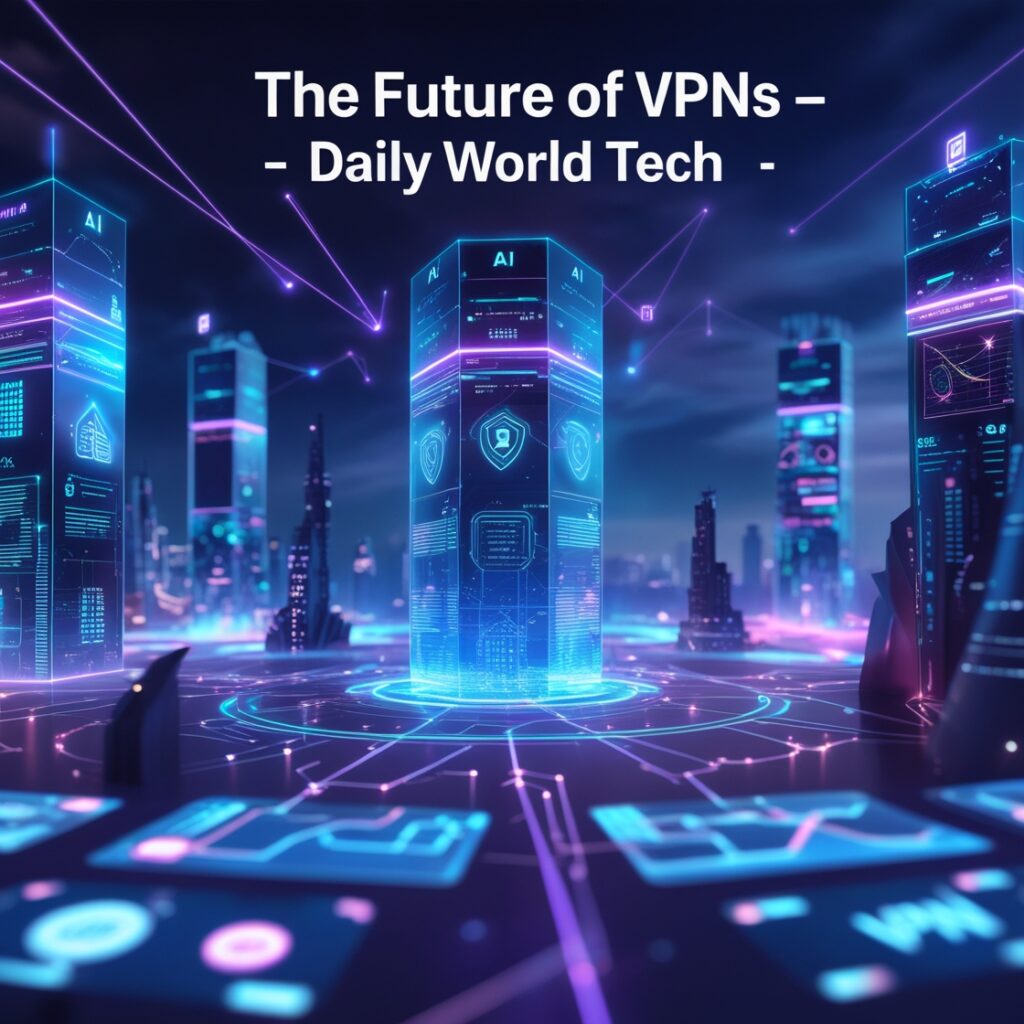
The Future of VPN Technology
Because we see more digital surveillance, threats in cyberspace, and online censorship, VPN services are changing as well. Upcoming innovations are likely to involve:
- Quantum-resistant encryption to protect from future tech threats
- AI integration to prevent attacks in real-time
- Decentralized VPNs (dVPNs) that distribute network control
- Simplified interfaces to make VPNs more accessible for average users
Using a VPN is important—not just nice—because we live in such a connected age.
Final Thoughts
VPNs allow you to safely protect your online activities. No matter if you are an average user, work remotely, travel, or value privacy, having a VPN will let you enjoy security, freedom, and peace of mind when using the internet.
Still, you should not rely on them completely. Choose a trusted provider and understand their limitations.
Using a secure VPN is just one good way to stay safe against digital risks when you surf, stream, or communicate. Read more information about VPN…











